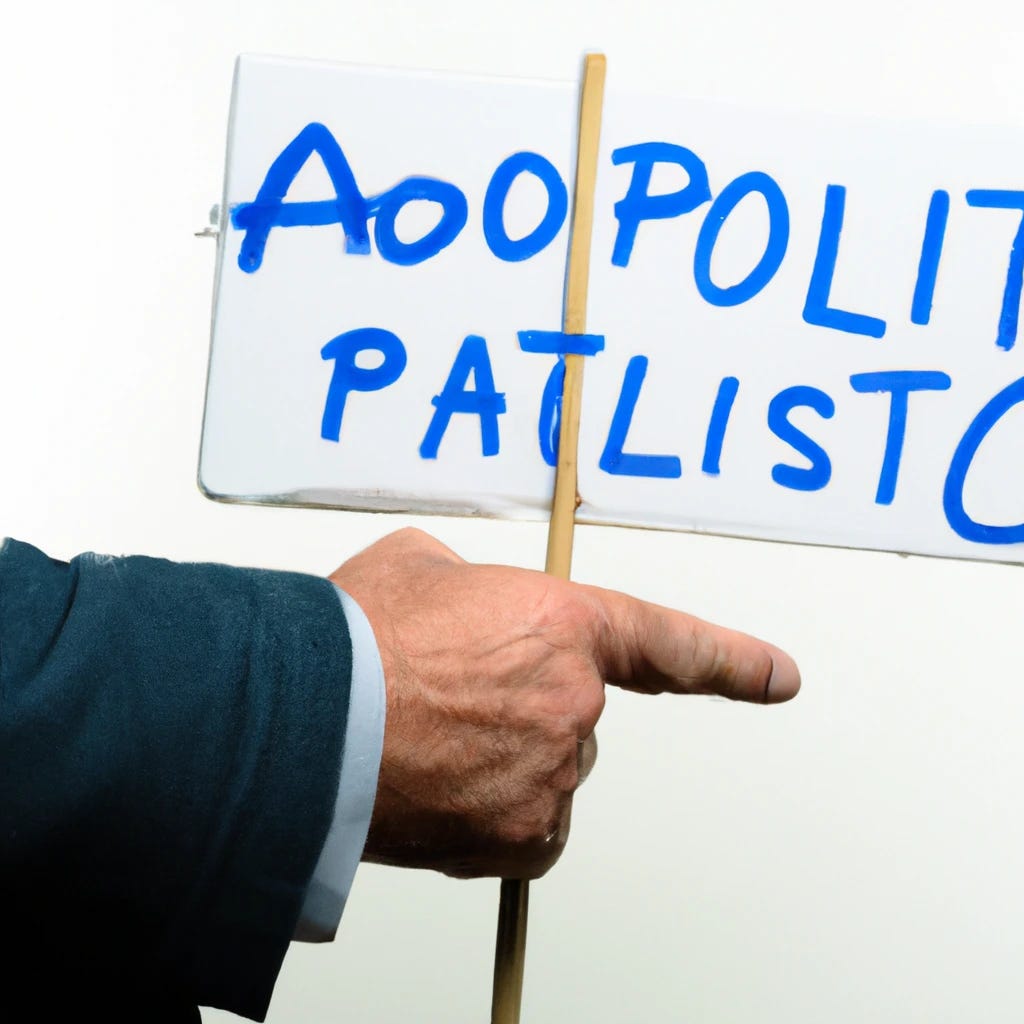Populism is the answer to the demand for a voice.
Hostility to populism has become the one phobia the media does not discuss- Demophobia!
Many people – even those who should know better – have been influenced by the anti-populist hysteria promoted by the mainstream media. Few of us are prepared to identify as a populist because of the negative characteristics attributed to it by its enemies. Yet, at its core, populism refers to people’s demand for a voice.
The search for a voice is communicated through a language alien to the ruling elites' outlook. They tend to regard the people as a group that needs to be tamed, managed, educated, nudged and made aware rather than as their equals. The insistence of populists for a voice challenges the presumption of elite authority, which is why elite power brokers regard them as a problem to be overcome.
The media narrative about populism is conveyed through alarmist language that conveys the insecurity of its authors. It can’t make up its mind and decide whether the target of their hatred is alive or well.
To take some recent examples.
‘Is this the end of populism?’ asks a hopeful commentary in The Article. In a similar vein, The New York Times wrote, ‘Will the Ukraine War End the Age of Populism?’ A similar sentiment was expressed in The Atlantic, where an author reflected that ‘We might have reached peak populism’. The author, Yascha Mounk, had clearly invested his hopes in the election of Joe Biden as President of the United States. He remarked that ‘if the picture looked almost unremittingly bleak a few years ago, now distinct patches of hope are on the horizon’.
In recent times optimism regarding the death of populism has given way to pessimism. ‘Is nationalist populism creating new nuclear dangers?’ is the rather alarming question raised by a commentator in the Nonproliferation Review. ‘Democracy is threatened by populism’ is the verdict of a Chilean observer, who asserts that:
‘There is an awareness that democracy is in crisis in the Western world. It is therefore urgent that political actors behave responsibly, without getting carried away by the ease with which populism can attract votes, just because it is becoming an efficient mechanism for gaining access to power’.
For its part, Politico is concerned that ‘Europe’s energy woes fuel leaders’ populist fears’. It notes that ‘officials are warily eyeing simmering protests as inflation, war and an energy crisis converge’.
In the wake of Giorgia Meloni’s successful performance in October’s Italian General Election, concern about the rise of populism has acquired a more urgent tone. ‘Is European politics beginning another lurch to the right?’ wrote a reporter for Euronews, who also warned about the electoral breakthrough of the Swedish Democrats a few days before the Italian General Elections.
The ideology of anti-populism
Since the turn of the century, anti-populist sentiments have mutated into a veritable ideology.
Outwardly, anti-populism presents itself as a response to the threat of fascism, xenophobia and the politics of hate. Anti-populism relies on rhetoric that portrays those it calls populists as an immediate threat to a democratic and tolerant way of life. And yet the anti-populist outlook promoted by the western cultural and political establishment is driven by a profound sense of mistrust and often hostility towards democracy and the people. The emergence of this anti-democratic animus within elite politics is one of the most disturbing developments of recent times.
Since the publication of Jason Brennan’s invective against the demos, Against Democracy (2006), there has been a veritable renaissance in the publication of elitist, anti-democratic thought. Anti-populist ideology is focused on two interrelated but contradictory themes. Democracy is blamed for the rise of populism, and at the same time, the populists are depicted as a threat to the survival of democracy.
Some anti-populists have criticised democracy for allowing populist movements to make significant headway. Steven Levitsky & Daniel Ziblatt’s book How Democracies Die (2018) pointed to ‘democratic backsliding’, which apparently ‘begins at the ballot box’. In this and other studies, the defects of democracies are attributed to the unpredictable and irrational behaviour of the people. The coupling of democracy with the metaphor of death is also highlighted in an issue of Foreign Affairs, which has as its title, ‘Is Democracy Dying’? The title of Yascha Mounk’s book, The People vs. Democracy: Why Our Freedom is in Danger and How to Save it (2018), captures the sense of the elite’s disdain for the people.
The current wave of anti-populist and anti-democratic literature is underpinned by a profound anxiety about the loss of elite authority. Unable to openly acknowledge and voice this anxiety, anti-populist ideologues blame their inability to win the arguments on the moral deficiencies of people who are spontaneously drawn towards the supposedly simplistic ideas of their opponents. In his, How Fascism Works: The Politics of Us and Them (2018), Jason Stanley notes that ‘the pull of fascist politics is powerful’ because it ‘simplifies human existence’. Instead of raising concern about the poverty of the intellectual outlook of the Western elites, Stanley prefers to point the finger of blame on an unsophisticated public who is moved by the simplistic message of the fascists. Anti-populism is a clear expression of hatred for the people - demophobia. In passing, it is important to point out the constant allusions to fascism which has become a constant theme promoted by anti-populist ideologues.
Those who raise the spectre of fascism invariably invite a sceptical response to the status of democracy. For, if indeed, democracy is so vulnerable to fascism –as Jason Stanley suggests – this form of political order is inherently defective. Echoing Plato, one of the first and one of the most eloquent anti-democratic philosophers, Stanley wrote,
‘It was not without justification that Plato saw in democracy’s freedom an allowance for the rise of a skilled demagogue who would take advantage of these freedoms to tear reality asunder, offering himself or herself as a substitute.’
Historically, the response of political oligarchies to ‘skilled demagogues’ who ‘would take advantage’ of freedoms was to reduce such freedoms or get rid of democracy altogether. The growing tendency of anti-populist commentators to present democracy as a mixed blessing exposes the authoritarian direction of their travel.
Ironically, populists are regularly condemned for constituting a threat to democracy. In reality, the most coherent and systematic arguments against democracy are voiced by those who regard populism as a threat to the prevailing political order.
Populist movements are often represented as irrational, driven by anger and therefore easily dismissed as emotional. The people and mass democracy are frequently devalued on the ground that they do not understand their interests, lack the sophistication to deal with complex issues, and are easily swayed by demagogues and the media. According to the caricature favoured by the mainstream media, populists are emotional, prejudiced, and probably racist and homophobic, if not borderline fascists. Other qualities associated with the populist mindset are a disposition towards religiosity, nationalism, traditionalism and very conventional ‘out of date’ lifestyles.
The distorted meaning of populism
The meaning of 21st century populism is fraught with difficulty because its usage has been so heavily influenced by the anti-populist temper that dominates public language. In the past, populism served as a form of self-designation, and people knowingly described themselves using this term. During the 19th century, the Narodniks in Russia, like the People’s Party in the United States, took pride in their populist outlook. In the 21st century, it’s the advocates of anti-populism who define their opponents as populists. The political scientist Ivan Krastev raised an important question when he asked, ‘who decides which policies are “populist” and which are “sound”?1 In the contemporary era, this decision has become the prerogative of a coterie of influential anti-populists.
In the 21st century, the meaning of populism has been distorted through the tendency of its opponents to attribute a wide range of negative qualities to it. The academic literature on populism is typically hostile to its subject matter and often projects values and attitudes on movements that its members would not recognise as their own. For example, a book on The Politics of Fear associates populist ‘EU-scepticism’ with a ‘chauvinist, nativist view of “the people” and with an extreme right-wing orientation’.2 This coupling of extreme right-wing inclinations with Euro-scepticism is undoubtedly an outcome of a genuine incomprehension of the phenomenon. But it also distorts a reality where the aspiration for democracy and solidarity has disillusioned millions of people with the EU.
Typically, a double standard is applied by anti-populist academics to their subject matter. For example, Jan-Werner Mueller, a professor of politics at Princeton University, has correctly drawn attention to the negative impact of identity politics in the 2016 American Presidential Elections. But he holds ‘Trump’s populist identity politics’ to a different standard from his opponents. He rightly calls for a move away from ‘white identity politics’ back ‘to the realm of interests’. However, he fails to note that identity politics is a weapon used by all sides and that Trump’s opponents constantly promoted it. Muller associates the ‘fantasy’ of ‘a single, homogeneous people who can do no wrong’ with the ideology of populism without acknowledging the prevalence of this fantasy in Western political culture. The homogenisation of identity and its fossilisation is, if anything, far more dominant amongst anti-populists than their opponents.
The hostility of elite-influenced literature towards populism, to a large measure, reflects the tension between the values deemed acceptable by the political and cultural establishment and those that influence the everyday life of ordinary people. This tendency is particularly visible in the media, where anti-populist contributors are often unable to take seriously people whose values are opposed to their worldview.
Movements designated as populists – from the left-wing Greek Syriza movement to the Brotherhood of Italy – are hostile to the EU's political institutions and its elites' cultural values. It is this direct challenge to values represented as mandatory by the dominant institutions of society that anti-populist commentators find difficult to accept. As the political theorist Margaret Canovan pointed out, unlike so-called social movements, populism does not merely challenge the holder of power but also ‘elite values’. Therefore, its hostility is also directed at ‘opinion formers and the media’3. For its part, the media has a real problem grasping the dynamics of populist politics. This problem is not simply the fault of its shallow analyses. As an institution, the media has become increasingly estranged from working people's lives and is intensely suspicious of those who do not share its cultural outlook.
It is important to note that historically anti-populist ideas and theories preceded those that advocated the cause of people. From Plato onwards, the social and cultural outlook of the political elites has been characteristically suspicious and often hostile to public opinion. Typically, they viewed the people as a ‘problem’. The American commentator Walter Lippman’s 1922 study, Public Opinion, provides the classic statement. He warns that the proportion of the electorate, which is ‘absolutely illiterate’, is much larger than we suspect and that these people who are ‘mentally children or barbarians’ are natural targets of manipulators. These are the early equivalents of the 21st century simpletons, who are drawn towards the ‘post-truth’ politics of pro-Brexit supporters.
Since the 19th century, anti-populist theories have dominated Anglo-American social science literature on the subject. Frequently it conveyed the patronising assumption that the people do not know what is in their best interest. By the 1950s, many American academics adopted an intensely hostile tone towards populist strands of public opinion. For 1950s American intellectuals like Daniel Bell, Edward Shils, Seymour Lipset and Richard Hofstader, ‘populism became the paradigmatic case of American-style xenophobia’4.
So, the tendency to stigmatise populist politics as a symptom of psychological disorder and irrationalism has a long history. In his study, The Populist Persuasion, Michael Kazin notes that in the United States during the Cold War, populism became the ‘great fear of liberal intellectuals’. They blamed mass democracy and an ‘authoritarian’ and ‘irrational’ working class for the rise of McCarthyism. Indeed, their hostility to McCarthyism, like antagonism to populist movements today, was underpinned by distrust and antipathy towards ‘the very kinds of white American-Catholic workers, military veterans, discontented families in the middle of the social structure – who had once been the foot soldiers in causes such as industrial unionism, the CIO and the Popular Front in the 1930s and 1940s’.
What is 21st-century populism?
Contemporary anti-populism is shaped by influences very different from its Cold War predecessor. In the post-Cold War era, conflicts over values – the so-called Culture Wars – have assumed a significant role. The relatively fragile cultural authority of the dominant political classes and their institutions has undermined their relations with important sections of society. While the ideologues of the elite can flatter themselves for possessing post-traditional, post-material or cosmopolitan values, they also know that their cultural legitimacy rests on feeble foundations.
What unites the different movements labelled as populists are their rejection of elite culture and the values it promotes. Despite the attempt to represent populist movements as a distinct political specie, they have little in common other than their hostility to ideals and the political practices of technocratic governance. Even a single movement, such as the one committed to Brexit, was motivated by various ideals and political strands. However, what bound these different strands of people together was their shared commitment to the value of sovereignty
Insofar as there is a common goal that distinguishes the voter of Vox and the supporter Podemos from the parties of the oligarchy, it is an aspiration for solidarity and community. Throughout the western world, many people feel alienated and estranged from their governments and institutions. They feel patronised by advocates of technocratic governments, and they have become sceptical towards the so-called truths communicated by professional politicians and experts. Many representatives of the cultural elite claim that the people no longer care about the truth. They mean that people don’t care about their version of the truth. So, when the French celebrity philosopher Bernard-Henry Levy complained that people have ‘lost interest in whether politicians tell the truth’, he described an electorate that no longer shares his system of values.
The people patronised by Levy feel that their habits, customs and traditions are constantly being ridiculed by an oligarchy that claims to possess the authority to dictate how people should lead their lives and behave towards each other. Consequently, many people feel insecure about their capacity to conduct their everyday affairs in accordance with their inclinations and are drawn towards movements that promise to take them seriously.
Of course, the People speak with different voices, are motivated by diverse concerns and are drawn towards a variety of heterogeneous solutions. Many of the reactions and attitudes associated with populism constitute what the political philosopher, Hannah Arendt would have characterised as the search for pre-political authority. The common quest for gaining meaning through the forging of pre-political solidarity can often express itself in different political forms. That is why populist aspirations can lead people to embrace a variety of contradictory political standpoints – sentiments such as the search for social justice and equality to an aspiration for sovereignty can attach themselves to the quest for solidarity.
In the long run, the authority of the competing cultural and political influences will determine the outcome of the current wave of the anti-technocratic populist movement. In the short run, through its challenge to the values and the language of the system of technocratic governance, populist sentiments help foster a climate where public life can be re-politicised. Populist sentiments can play an important role in reviving a culture of political participation and democratic debate. However, the populist rejection of the values of the elites does not constitute a positive and viable alternative to the politics of technocratic governance. Populism constitutes a positive reaction to the technocratic politics and values that alienates many people from their traditions, community and way of life. What’s needed is not simply the rejection of the prevailing anti-demos culture but a positive political alternative that promotes the values of democracy and social solidarity. The crystallisation of the populist impulse into a political movement that infuses the aspiration for solidarity with the ideals of popular sovereignty, consent, and an uncompromising commitment to liberty might today sound utopian. But it is a cause well worth fighting for!
[1] Krastev, I. (2007). The strange death of the liberal consensus. Journal of democracy, 18(4)
Ruth Wodak (2015) The Politics of Fear: What Right-Wing Populist Discourses Mean, Sage: London, pp.41-43 & 54-55.
Canovan, Margaret. "Trust the people! Populism and the two faces of democracy." Political Studies 47.1 (1999): 2-16.
Singh, N. P. (1998) ‘Culture/Wars: Recoding Empire in an Age of Democracy’, American Quarterly, 50, 3, p.13.







You are right David, it has that kind of an outcome. Passivity and evasion of responsibility amongst biologically grown up people is that hallmark of an infantilised disposition.
Yes - responsibility is key - a missing ingredient in contemporary political culture!